Things Not to Do in Thailand: A Practical Guide for the Respectful Traveler
Traveling to Thailand is an unforgettable experience: majestic temples, spectacular cuisine, and friendly people. But, as in any country with a distinct culture, there are social norms you should be aware of so as not to unintentionally offend others.
In this guide we explain 10 things you should not do in Thailand.to, so that you can enjoy your trip to the fullest with respect and responsibility.
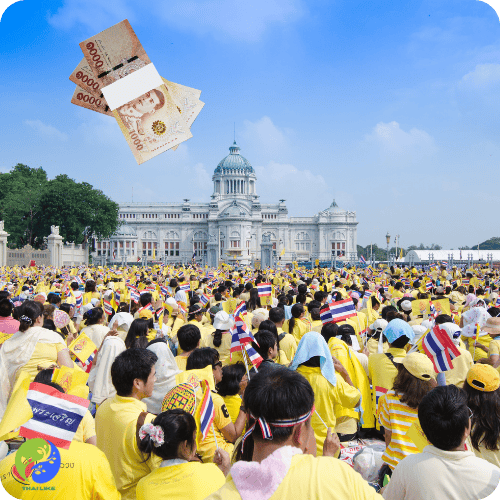
In Thailand, the figure of the king is sacred. Speaking ill of the monarchy, making jokes, or even damaging a banknote bearing his image can be considered a serious crime. The so-called "lèse-majesté" law is very strict and harshly enforced, even against tourists.
Even if you come from a country where leaders are free to criticize, you should be very careful with your comments here, both in public and on social media. Even a seemingly innocent action can lead to legal problems. Respect for the monarchy is not optional; it's part of Thai national identity.
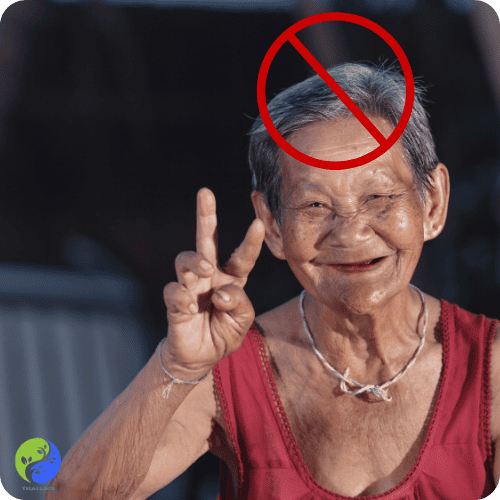
The head, in Thai culture, is considered the most sacred part of the body. Touching it, even with friendly intentions or while playing with a child, can be interpreted as disrespectful, especially if you don't have a close relationship with the person.
This gesture, which in other countries may be seen as tender or harmless, can generate discomfort or rejection here. Avoid any head contact, even when passing through narrow spaces. In Thailand, physical respect is expressed by avoiding such contact, especially with older people.

The feet are considered the lowest and most impure part of the body. Therefore, never use them to point at objects, people, or sacred images. Also, don't place them on chairs, tables, or furniture, even if you're in a casual setting.
If you're sitting, avoid pointing your feet directly at another person or an image of Buddha. And if you enter a temple or traditional home, be sure to sit with your legs tucked in, with the soles of your feet not visible. It's a small detail, but one of great cultural significance.
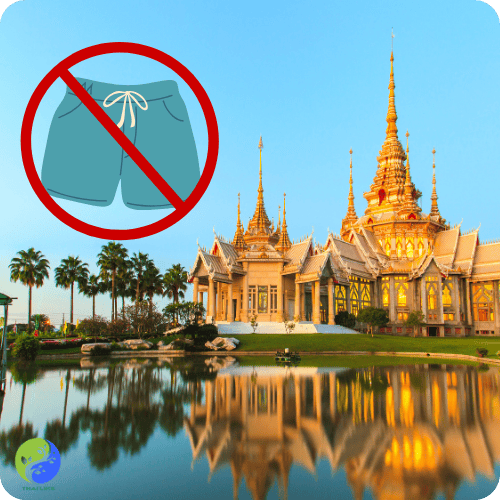
Buddhist temples are sacred places, not tourist attractions in the Western sense. To enter, you must dress respectfully: no shorts, tank tops, or see-through clothing. This applies to both men and women.
Many temples offer scarves or long skirts to cover up if necessary, but it's best to be prepared. Also, you should remove your shoes before entering. It's also important to remain quiet and avoid taking provocative or disrespectful photos next to Buddha statues.
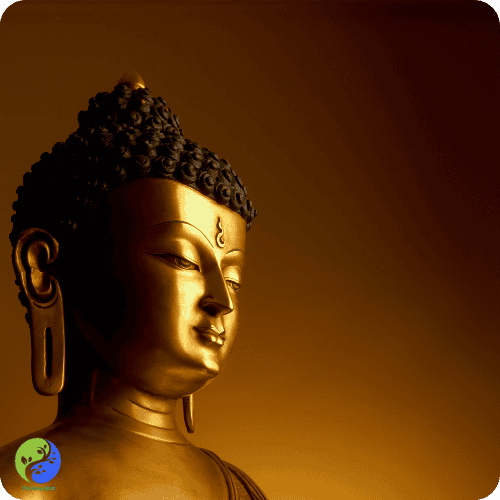
Buddhist temples are sacred places, not tourist attractions in the Western sense. To enter, you must dress respectfully: no shorts, tank tops, or see-through clothing. This applies to both men and women.
Many temples offer scarves or long skirts to cover up if necessary, but it's best to be prepared. Also, you should remove your shoes before entering. It's also important to remain quiet and avoid taking provocative or disrespectful photos next to Buddha statues.
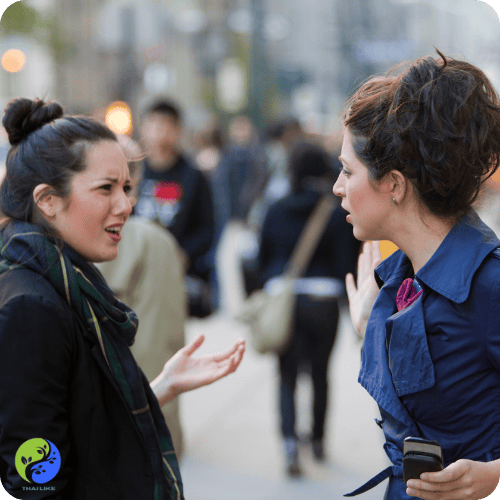
In Thailand, staying calm is an unwritten social norm. Losing your temper, shouting, or arguing loudly generates discomfort and rejection. Even in frustrating situations, such as a delay or misunderstanding, you are expected to remain calm.
This behavior is linked to the "sabai sabai" philosophy, which values inner peace and social harmony. If you maintain your composure, people are much more likely to help and respect you. Being kind and calm opens many more doors than shouting and imposing your point of view.

Even if you come from a different culture, it's important to observe without judgment. Buddhist customs, rituals, and Thai ways of life may be different, but that doesn't make them inferior. Sarcastic comments or jokes about religion can offend those around you.
Being a respectful traveler means keeping an open mind, even if something seems strange. Instead of laughing or questioning, ask with curiosity or simply observe. This will earn the respect of locals and enrich your experience.

Although kissing or hugging in public is normal in many countries, such displays of affection are not common in Thailand. Thais are reserved with their physical emotions in public spaces, and a kiss can be considered inappropriate.
You can walk hand in hand or greet others naturally, but avoid long kisses or passionate hugs, especially in temples, markets, or traditional spaces. Showing respect for the environment also means adapting to its social norms.

Although you'll see many Thais without helmets, driving without protection is illegal and very dangerous. Furthermore, as a tourist, if you don't have the proper International Driving Permit, you could get into trouble with the police or your travel insurance in the event of an accident.
Renting a motorbike seems easy, but don't underestimate the risks. Traffic in Thailand can be chaotic, and motorbike accidents among travelers are common. Always wear a helmet, obey the rules, and make sure you're covered by your insurance.
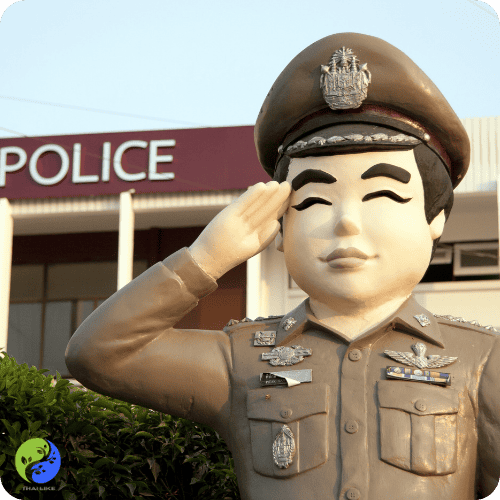
Many travelers become overly relaxed upon arriving in Thailand and think that anything goes. But remember, you're in a country with different laws, customs, and cultural sensitivities. Being a tourist doesn't give you the right to ignore them.
Respect the rules, mind your attitude, and remember that you're a guest. Every small gesture of respect is noticeable, and Thai people appreciate it greatly. If you travel with humility and curiosity, your experience will be much more authentic.
Prepare your visit to Thailand with our practical tips!!
Prepare your visit to Thailand with our practical tips. From information on visas and transportation to accommodation suggestions, we will provide you with the essential information to plan your adventure.




